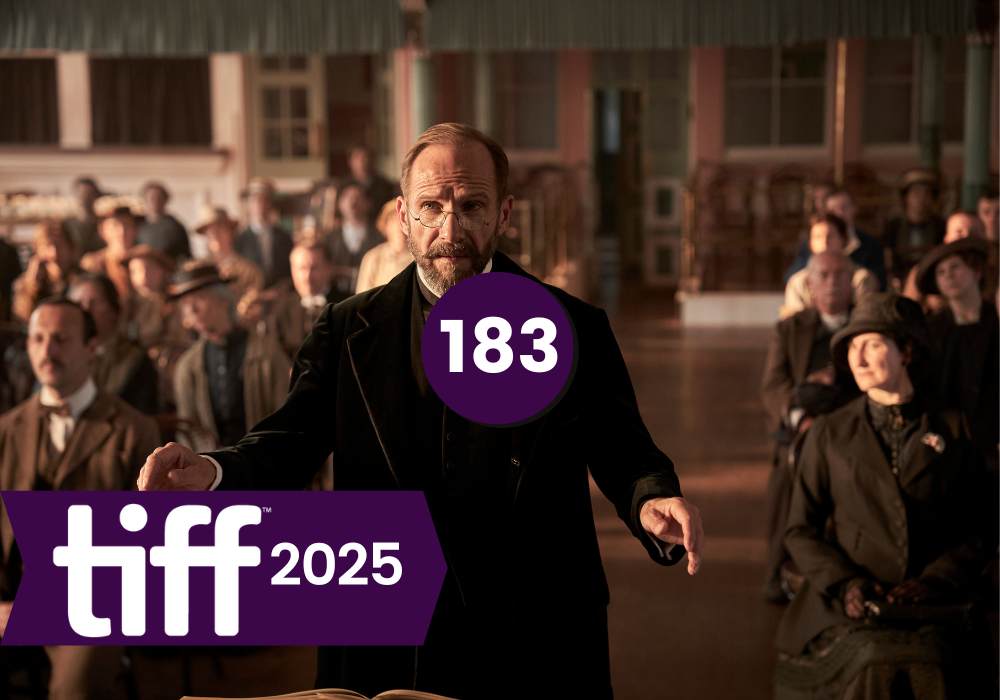Seventh Row’s editors pick the 17 best performances at TIFF ’20, from Kate Winslet in Ammonite to the cast of One Night in Miami. Keep up to date with our TIFF ’20 coverage.

We already spotlighted the best of TIFF ‘20 acting talent a few weeks ago, with our feature on the 13 most exciting emerging actors at the festival. Some of those major talents crop up again on this list (Leslie Odom Jr., Rachel Sennott), which spotlights the 17 best performances we saw at the festival. Others on this list are acting legends who are still at the top of their game (Kate Winslet, Anthony Hopkins). And then some performers we weren’t as aware of surprised us with incredible work (Rainbow Dickerson, Jasna Ðuricic). We’ll be watching out for whatever they do next.
There was a lot of great acting at TIFF ‘20, much of which we didn’t have space or time to include. Conversely, there were some films with acting so good that we couldn’t pick just one player. One Night in Miami comes out top with four inclusions, because we just couldn’t pick between its extraordinary four lead actors. Then there’s Ammonite with three inclusions — Kate Winslet, James McArdle, and Fiona Shaw — but we could have easily included their co-stars, Saoirse Ronan and Alec Secareanu, too. The third film we feature multiple times was Pieces of a Woman, listing the luminous lead Vanessa Kirby and equally as excellent supporting player Molly Parker, although Shia LaBeouf, Ellen Burstyn, and Sarah Snook are also wonderful in the film.
Still, we whittled it down to the 17 best of the best. Some of these performers will make it to the Oscars (we’ll wager that Winslet and Kirby are both getting a Best Actress nomination), and many won’t get a look in. But they’re all scene stealers.
Kate Winslet, Ammonite
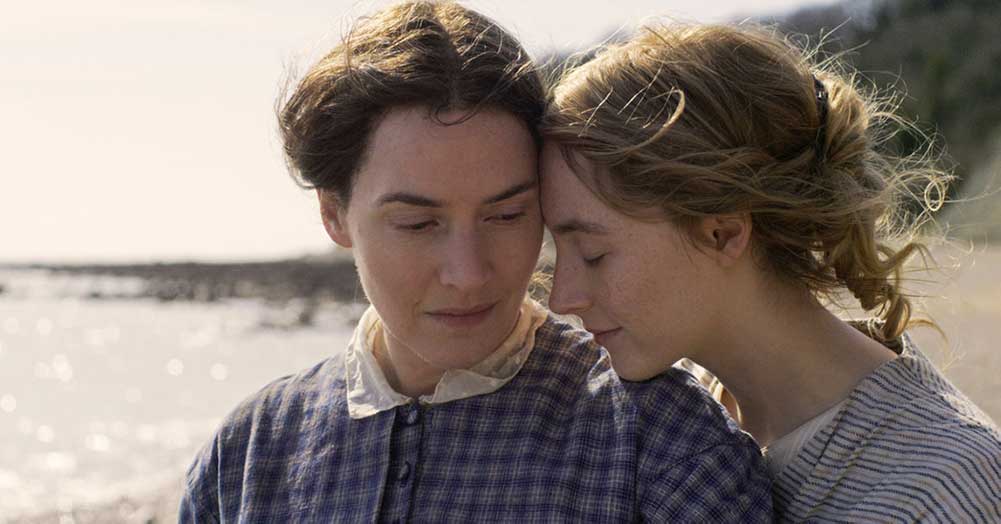
Oscar-winning actress Kate Winslet has never been better than she is playing pioneering paleontologist Mary Anning. Perhaps that’s because few directors trust their actors to express themselves without dialogue as much as Francis Lee does. Her Anning is a quiet woman who is dedicated to her work and withdrawn from social interaction. In the opening scenes of the film, Winslet silently trudges across a stony beach, scrapes her hands through mud, and attempts to climb a jagged rock face. It is through labour that we learn who Mary is.
Mary opens up to the world incrementally through her relationship with Charlotte Murchison (Saoirse Ronan), although Winslet never overstates her slow blooming. By holding so much back, Winslet ensures that every gesture, touch, and look feels monumental. Her first all-out grin in the film is a revelation because, up until that point, the most we’ve been treated to is a wry twitch of the lip. When she finally gives the closest thing to an ‘Oscar-y speech’ you’ll find in Ammonite, during its closing scenes, it feels totally earned. We know Winslet doesn’t have to say it out loud for us to know what’s on Mary’s mind, so the fact that Mary is finally able to speak her feelings feels like a character breakthrough rather than a vain actor’s showcase. Orla Smith
James McArdle, Ammonite
Although James McArdle only appears in Ammonite for a handful of scenes at the beginning of the film, he leaves a lasting mark. As Mr. Murchison, the posh, amateur paleontologist husband of Charlotte Murchison, McArdle is the embodiment of well-intentioned but oblivious, bumbling male privilege. He arrives unannounced to visit Mary Anning, with the expectation that she’ll stop everything she’s doing to teach him; his smiles, jovial manner, and excessive compliments suggest he thinks that his enthusiasm excuses any imposition. Even when Mary points out his privilege, he doesn’t know how to respond; McArdle pauses, as if unused to the challenge, smiling more.
McArdle crafts a complex portrait of a man who is a product of his time and yet, in some ways, forward-thinking in his respect for women — even as he undermines his good intentions at every step with his privilege. Out on the rocks with Mary, McArdle’s unsteady gait while wearing a superfluous top hat is both a great source of comic relief and an instant indication of how privileged and out of place Mr. Murchison is. The way he orders dinner for Charlotte without asking her opinion or even looking at her cements this man’s self-assurance and unconscious tyranny. And yet, for all his faults, he clearly loves and adores his wife, given how hard he works to bargain with Mary to take her on. And he reveres Mary, who has been overlooked by other men. Alex Heeney
Fiona Shaw, Ammonite
The legendary Fiona Shaw has just two scenes in Ammonite, but you understand so much about her character just from the way she holds herself, or the way she smiles warmly at Kate Winslet’s Mary Anning. Francis Lee’s method is to work with his actors for a while before shooting to map out their character’s entire backstory; nowhere is this more clear than in Shaw’s performance and her on-screen dynamic with Winslet. It’s never explicitly stated that her character, Elizabeth, is Mary’s ex-lover, but the way she lights up when she sees Mary makes you immediately suspect as much. Still, you also understand why — despite the affection in Elizabeth’s gaze at Mary — they’re no longer together. While Mary is closed off and withdrawn, Shaw plays Elizabeth as radiant, proud, and self-possessed. Somehow, Shaw has the ability to convey all this within her first few seconds of screentime, without a word having passed her lips. OS
Mads Mikkelsen, Another Round
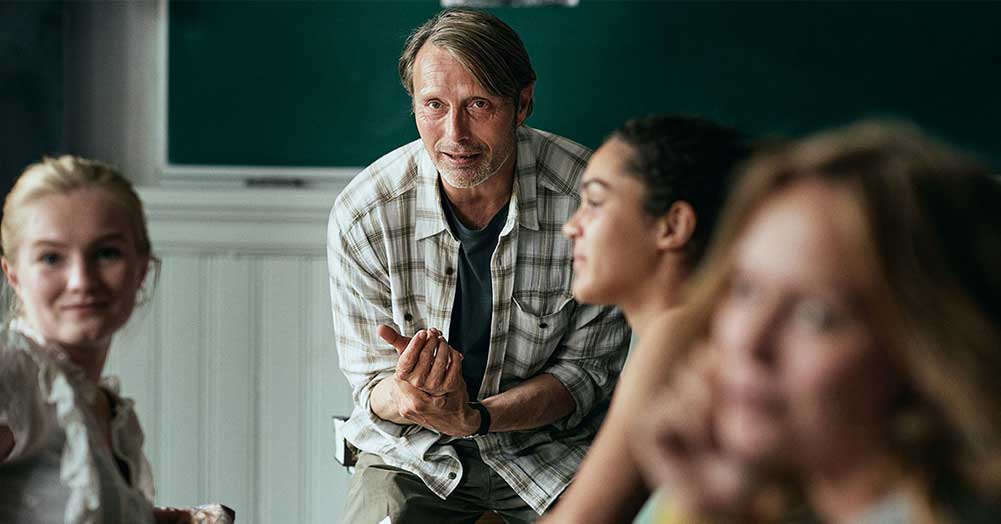
Mads Mikkelsen gives one of his best performances in years in Another Round, in which he reunites with director Thomas Vinterberg for the first time since 2012’s The Hunt. In Another Round, Mikkelsen plays history teacher Martin, one of four high school teachers who participate in a ‘social experiment’ (read: midlife crisis): maintain a constant 0.05% blood-alcohol content to see if it makes them any happier, more fulfilled, and better at their jobs. Mikkelsen gives one of his most sensitive, vulnerable performances here, but he also gets to have his fun with slapstick (walking into walls) and, surprisingly, an uproariously fun scene of ‘jazz ballet’. I’ve never seen him this graceful. OS
Aris Servetalis, Apples

There’s a special kind of skill required of actors in Greek Weird Wave movies — the movement of ultra-deadpan surreal dramedies pioneered by filmmakers like Yorgos Lanthimos and Athina Rachel Tsangari. The best performers in these films, like Colin Farrell in The Lobster or Angeliki Papoulia in Dogtooth, manage to find subtle shading in the monotone delivery the director requires of them.
In Apples, the directorial debut of Lanthimos’ collaborator Christos Nikou, lead actor Aris Servetalis excels at this. While it’s not revealed until late into the film that his character is suffering profound grief, we sense it from the start just from his physicality. He walks through the street with his hands in his pockets, head down, and shoulders hunched inward, as if shielding himself from the world. He pretends to be an amnesiac so he can be admitted to a hospital programme and taken care of, and Servetalis’s weary gaze helps us understand that this is likely because he’s no longer driven to take care of himself. In this hospital, he shrinks further in on himself, slouching in chairs so he looks small, like a child awaiting instruction from his parents. The film itself has few ideas, but Servetalis lends it an extra layer of depth and feeling. OS
Rainbow Dickerson, Beans
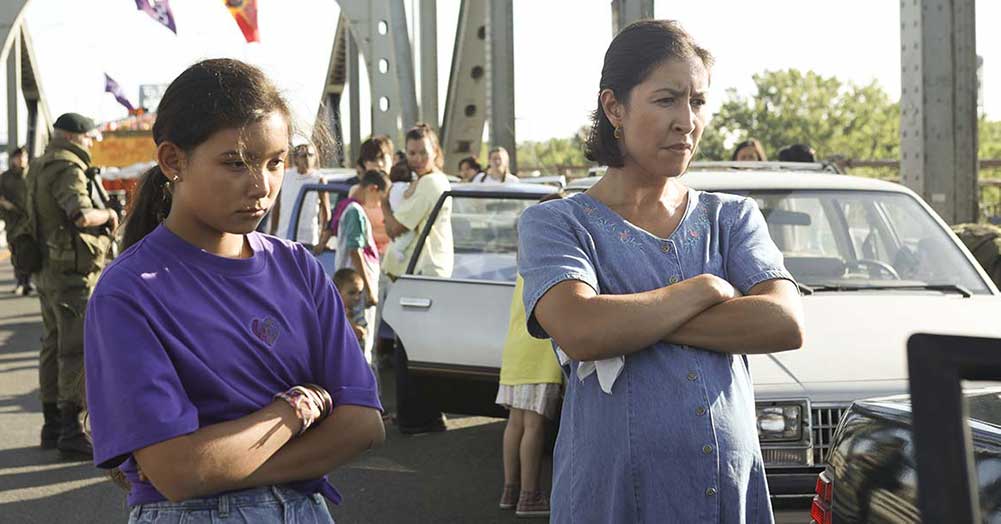
In Tracey Deer’s Beans, actress Rainbow Dickerson rises above some pretty stilted dialogue and thin characterisation to make her character, Lily, feel real and lived in. Lily is the heavily pregnant mother of the film’s main character, Beans (Kiawentiio), a young Mohawk girl living through the trauma of the Oka Crisis in 1990. Because the film is told from Beans’s limited perspective, we get frustratingly little access to Lily’s adult world, but Dickerson does a good job of implying what remains unsaid in the script.
Her weariness conveys a woman who has experienced trauma her whole life. The fierceness in her voice when standing up against racism tells us this is a woman fuelled by fiery political anger, even if her physical condition and parental responsibility limits her involvement in protests. One of the most horrifying scenes of the film plays mostly on her face as she drives through a crowd of white settlers throwing rocks at her car: Dickerson screams and cries in terror while keeping her hands steadily on the wheel, refusing to give up on getting herself and her children to safety. It’s this delicate balance — of fear and steely persistence — that makes her character sing. OS
Anthony Hopkins, The Father
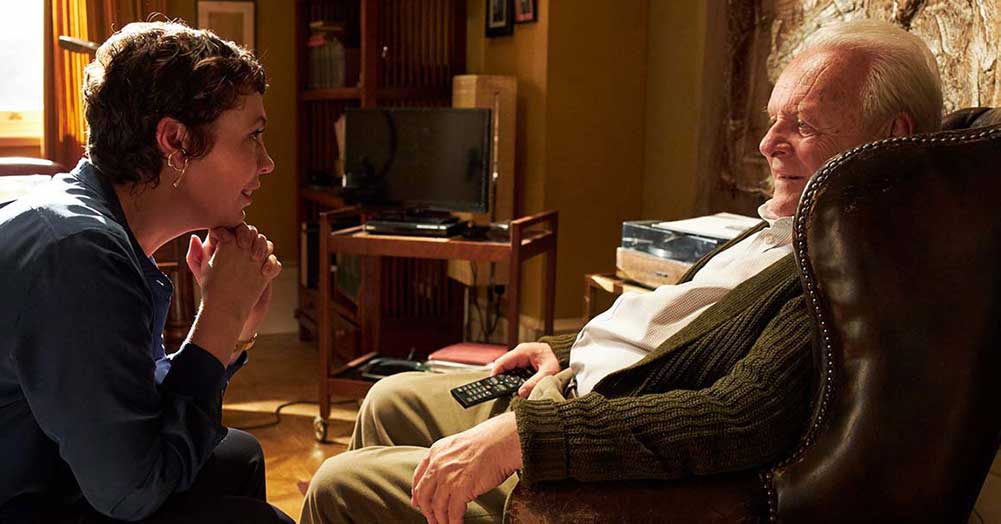
At 82, Anthony Hopkins shows no signs of slowing down, still turning out amazing performances on an almost annual basis. After giving us one of the best King Lears I’ve ever seen (King Lear, Richard Eyre), he’s back in The Father as a man losing his mind as he copes with dementia. The film is told from the perspective of his character, Anthony, a man who is never quite sure where he is (the sets shift) or whether his daughter is played by Olivia Colman or Olivia Williams.
At his most lucid, Anthony can be a charmer and a raconteur, tap-dancing and open, but he can just as easily shift into firing off nasty barbs with absolutely no care for the feelings of others. At his most confused, he can be compliant, calm, even kind. And at times, he is so scared, he turns in on himself and becomes like a small child. Always, he’s a man thinking, trying to sort the real from the imagined, trying to understand the world he’s in, and when he’s confident enough, exert control over every situation. It’s a testament to Hopkins that all of these seemingly distinct identities feel like sides and shades of the same man — a man who is on the verge of losing his identity. AH
Rosamund Pike, I Care a Lot
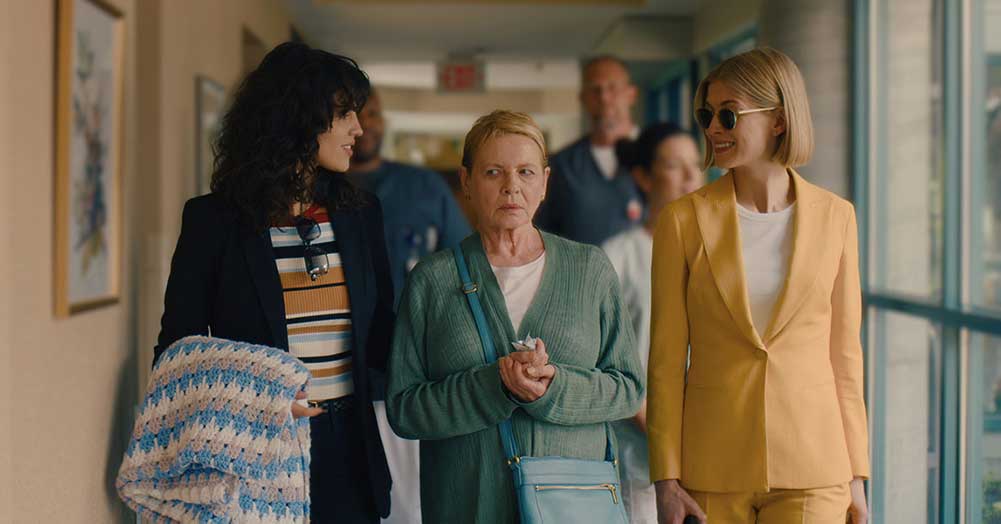
Returning to the psychopath mode we all loved in Gone Girl, Rosamund Pike gives her most fun and exciting performance in years in I Care a Lot. The film is a campy but ultimately tiresome romp that’s only watchable because of the sheer force of her charisma. She plays Marla, a smart and savvy con artist who scams old people out of their savings by acting as their legally appointed carer. Marla is a morally bankrupt badass, and it’s so much fun to see her think on her feet and read people for filth.
The highly intelligent Pike is so great at showing her characters think; she can convey a huge realisation with just a subtle shift in her eyeline. Crucially, Marla isn’t just a cold, unfeeling sociopath: she has so much fun when she’s screwing over other people. Pike’s bright, devilish smiles are infectious, despite how evil Marla is. They reveal that Marla’s motivation isn’t just money and power, but the thrilling high of showing off that she’s the smartest person in the room. OS
Denise Gough, Monday

The one reason to see Monday, Argyris Papadimitropoulos’s shaggy Bad Romance, is for Denise Gough’s performance. Although she’s had several meaty and Olivier-winning parts on stage (Angels in America and People, Places, Things), her screen roles to date have been largely supporting (BBC mini-series Paula excepted). Gough is an actress who thrives when given lots of screen time to go deep into a character, and that’s on display here in Monday, in which she co-stars with Sebastian Stan, but steals every scene.
Gough plays Chloe, an American immigration lawyer living in Greece, who has a whirlwind one-night-stand turned weekend romance with fellow American Mickey (Sebastian Stan), which then turns into a long-term, fraught relationship. From the start, Chloe is aware that she’s too good for Mickey — more educated, more mature. But he’s exactly the kind of loser who feeds her worst qualities, encouraging her drunkenness, which turns her into someone even more immature and irresponsible than he is. Gough expertly navigates Chloe’s seemingly split personality, showing us, through small facial tics that she knows she should get out, and then in full-body abandon, how she gets swept up in sex and partying with Mickey. Always wearing someone else’s clothes, Gough makes Chloe someone who is not sure who she is, and yet entirely specific as an individual. AH
Kingsley Ben-Adir, Eli Goree, Aldis Hodge, and Leslie Odom Jr., One Night in Miami
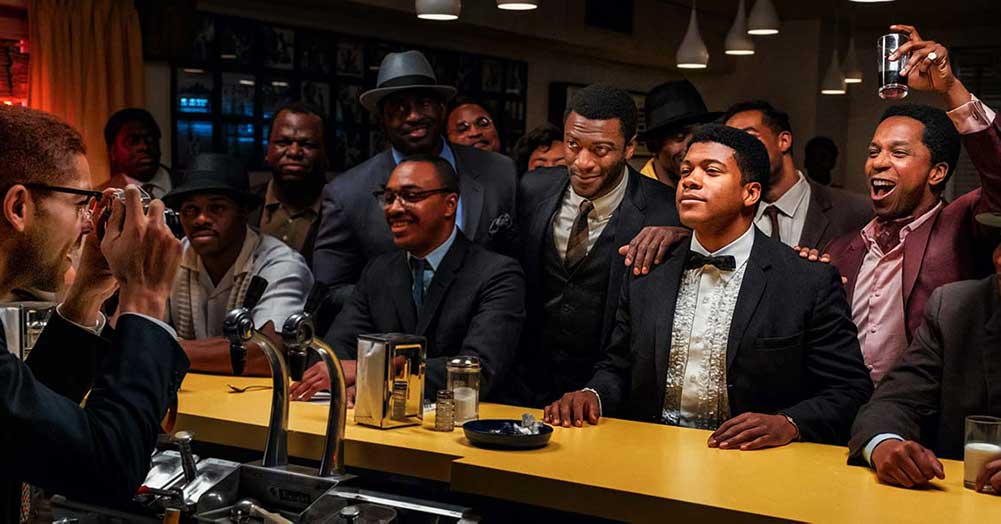
It’s hard to pick a standout in the ultra-charismatic cast of One Night in Miami. Regina King’s first feature is a showcase for Kingsley Ben-Adir (playing Malcolm X), Leslie Odom Jr. (Sam Cooke), Eli Goree (Cassius Clay), and Aldis Hodge (Jim Brown). The film, which is based on a play, takes place mostly in a hotel room where all four men celebrate Clay’s win (this is just before he changed his name to Muhammad Ali) and eventually come to heads over their conflicting approaches to activism.
None of these performances come across as crude imitations; rather, each actor captures the unique and potent form of charisma of the real-life figure they’re playing. Goree has the energy of a labrador as Clay in his early 20s: he’s loud, loveable, and energetic, even at one point bouncing up and down on the hotel bed. Hodge’s Brown is the most thinly written of the four, and yet Hodge is so magnetic that it makes up for his sidelining. He conveys a man with a strong, reassuring presence, so it makes sense that he’s the one to take Malcolm X aside and give him a pep talk near the end of the film. Ben-Adir is striking as Malcolm X, who always feels like the epicentre of the room even though he’s the stillest and often the quietest of the men in the room. You really get the sense of why Malcolm X was the respected and powerful leader he was without Ben-Adir having to over-stress his importance.
If anyone shines brightest in this stellar cast, it’s Leslie Odom Jr. as Sam Cooke (see our emerging actors at TIFF piece), and it’s not just because we get to hear Odom Jr.’s gorgeous singing voice. Cooke’s arguments with Malcolm X fuel the film’s tension: Malcolm X wants Cooke to stop pandering to white audiences with his music and write something more overtly political; Cooke is a staunch pragmatist who’s reluctant to risk giving up his seat at the table. It’s impossible to tear your eyes away from Odom Jr., who skillfully balances Cooke’s inner conflict with the way he projects cocky charisma to those around him. What’s more, the powerful final moments, in which Cooke performs “A Change is Gonna Come,” hinges on Odom Jr.: not just his amazing voice, but the way he acts through song to bring the story to its emotional resolution. OS
Laetitia Dosch, Passion Simple

Like Monday, Passion Simple is another film about a smart, educated woman who becomes obsessed with a loser of a man, to her own detriment. Laetitia Dosch’s Hélène is an infuriating character, prone to bad decisions, attached to her phone, and always at least half spaced out when with anyone other than her lover. It’s a tribute to Dosch’s performance (and, to be fair, Arbid’s direction) that the film is still compulsively watchable even though you want to smack Hélène into shape. Dosch is a believably flighty academic, capable of intelligent thought, but often rendered useless in the face of sexual desire for a perplexingly undesirable man. And yet, Dosch sells Hélène’s obsession, putting us in her dreamy headspace while hinting at her personal downfall from the start. AH
Vanessa Kirby, Pieces of a Woman

An excerpt of our essay on Kirby’s performance: “Thirty minutes into Pieces of a Woman, I was ready to declare Vanessa Kirby a future Oscar nominee for the film. She has already picked up the Best Actress Award at Venice for her performance, the same award that launched Emma Stone’s road to her Oscar. In the film’s early 20-minute single-take birthing scene, Kirby’s Martha goes into labour and gives birth. What could be overly dramatic is, in Kirby’s hands, surprisingly underplayed but no less real: from burping, to unexpected pangs, to her repeated understatement that “This is really awful.” It’s the kind of performance that’s physically showy enough to garner awards attention and yet subtle enough to actually be good.
What’s most remarkable about that birthing scene is how it establishes the way in which Martha responds to stress and pressure, by turning in on herself. Momentarily alone in the bathtub, we understand that Martha is in sudden pain by the way Kirby unexpectedly tenses her hand in the air. Martha only occasionally swears, and usually quietly. She doesn’t want to be any trouble. Once Martha loses her child and must cope with the grief, Kirby turns further inward, in the way she taught us to expect in that first birthing scene. Staring off into space to avoid confrontation and arguments is her general modus operandus.”… AH
Keep reading our essay on Vanessa Kirby’s performance in Pieces of a Woman.
Molly Parker, Pieces of a Woman
As the midwife, Molly Parker is the key third player in Pieces of a Woman’s already legendary 20-minute birthing scene. Vanessa Kirby is a powerhouse, sure, and Shia LaBeouf is a sturdy and supportive scene partner. But Parker is just as good. It’s an extremely unshowy performance: quite simply, she’s playing someone who’s unequivocally good at her job, which is important to establish given her professionalism is unfairly called into question later in the film. Parker conveys a woman who’s kind and deeply cares about every woman she helps to give birth, while never letting emotions cloud her clear head. When the birth takes a worrying turn, as the baby’s heartbeat slows down, the tension and dread of the scene lands squarely on Parker’s shoulders. She never overplays her worry; rather, over the course of several minutes, her frown grows deep and her voice becomes more taut and hurried. You can’t take your eyes off Parker: if something bad is going to happen to the baby, we know we’ll be able to read it on Parker’s face first, so each miniscule shift in her expression is a terrifying gut punch. OS
Jasna Ðuricic, Quo Vadis, Aida?
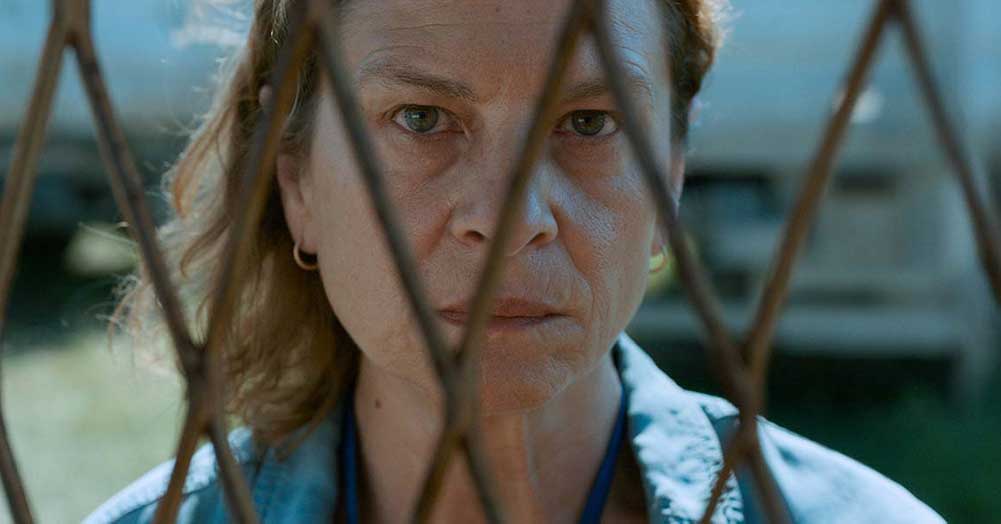
Playing a language translator takes particular skill and intellectual engagement: you have to convey how your character is feeling while reciting other characters’ words. In that respect, Jasna Ðuricic in Quo Vadis, Aida? joins Lily Gladstone in First Cow in the ranks of 2020’s great translator performances. Despite the increasing horrors Ðuricic’s character, Aida, experiences over the course of the film, which is about the Bosnian genocide, her greatest performance showcase is probably the opening scene. Aida translates between Dutch UN officials and the mayor of her hometown, Srebrenica. In this scene, Aida only repeats the words of others, but Ðuricic ensures she never seems like an impartial observer. Her stony-faced fierceness and sharp, urgent delivery of each line conveys a woman who blurs the lines between translator and negotiator. OS
Rachel Sennott, Shiva Baby

Newcomer Rachel Sennott portrayed Danielle, a college student who encounters her sugar daddy at a Jewish funeral, in Emma Seligman’s short film Shiva Baby from 2018. She now stars in Seligman’s debut feature of the same name which expands upon the original’s premise, adding Danielle’s ex-girlfriend Maya (Booksmart‘s Molly Gordon) to the proceedings. Sennott is excellent as the film’s deeply flawed protagonist, making Danielle’s bursts of cruelty, petulance, and anxiety completely believable and relatable. Sennott’s skillful performance highlights how Danielle reluctantly takes on a traditionally feminine, submissive role through both her sex work with her client, Max (Danny Deferrari), and within the strict social setting of the Shiva.
Yet Danielle’s frustration at having to compromise herself and deny her bisexuality radiates through Sennott’s painted smiles and forced laughs. The film’s most satisfying moments are when that mask slips during scenes of tender vulnerability with her ex-girlfriend or an emotional breakdown at the climax. Sennott handles these dramatic beats, and the film’s sharp, uncomfortable comedic edge, brilliantly. Sennott is surely an actor with an exciting career ahead of her. Milly Gribben
Crystle Lightning, Trickster

Although Crystle Lightning, an Indigenous actress from the Enoch Cree Nation, has been working for almost thirty years, getting her start as a child actress, it’s largely been as day players on television or bit — even uncredited — parts on film. With Michelle Latimer’s new CBC TV series Trickster, she’s set to break out as the incredibly fierce and occasionally immature Maggie, the mother of the show’s protagonist, Jared. Of course, with Trickster’s focus on family and intergenerational trauma, you could make a strong argument that Maggie is the show’s co-protagonist, without ever making it feel like we’re leaving YA territory. As someone who got pregnant young, and was abandoned by her own parent, she hasn’t quite fully grown up herself, and the show charts her own maturation as she tries to protect her son, which requires reconnecting with her mother. As Shakespeare would say, though Maggie be but little, she is fierce: wielding a crossbow, fighting monsters, and confronting her mother, even as she makes some terrible decisions in her own life in the more habitual aspects of parenting. I can’t wait to see what’s next for her in Season 2. AH
Koji Yakusho, Under the Open Sky
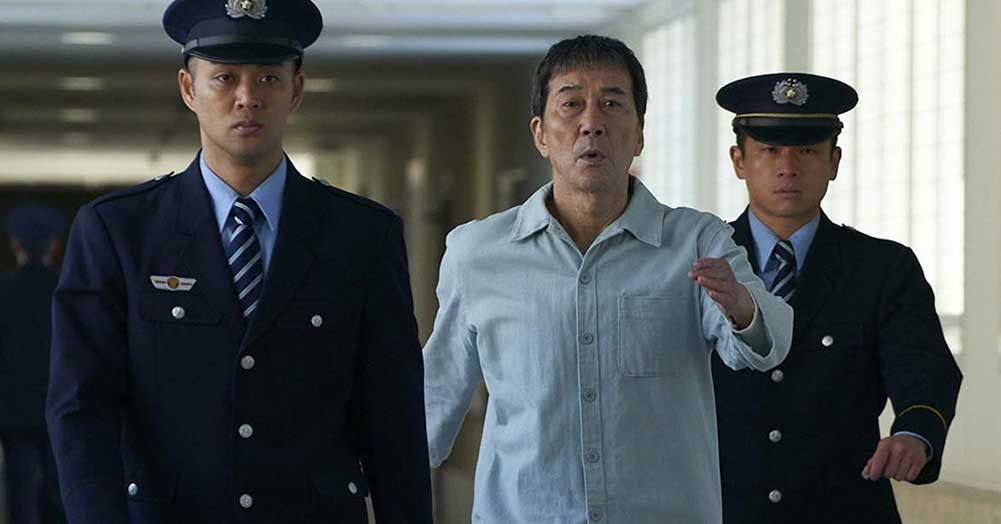
Miwa Nishikawa’s character study of an ex-yakuza adjusting to life out of prison, Under the Open Sky, hinges on a complex portrayal by Kôji Yakusho. The veteran Japanese actor anchors this gentle but rather unfocused and saccharine film with his complex character of Mikami, who has just finished a 13-year prison sentence in his late middle age.
Yakusho will break your heart within his first few moments of screen. He’s comfortable in the strict routine of prison, even answering the prison guards’ questions with the regimented tone of a soldier retorting back to his army captain. But when the prison doctor remarks, “It’s not too late to start over,” we see Mikami become instantly vulnerable, nodding nervously as if trying to convince himself that, indeed, it’s not too late. When the guards send him off to the bus stop outside prison, they say “Take care, go straight home,” like parents sending their child off to his first day of school; Yakusho acts like a small, scared child, too.
By recalling the body language and violent mood swings of someone much younger than himself, Yakusho’s performance really helps us understand why leaving prison after so long is hard for Mikami. He’s spent so long being monitored and told what to do, like a child, that re-entering the adult world of responsibility and making your own choices is terrifying. OS
READ: More coverage of the Toronto International Film Festival >>
